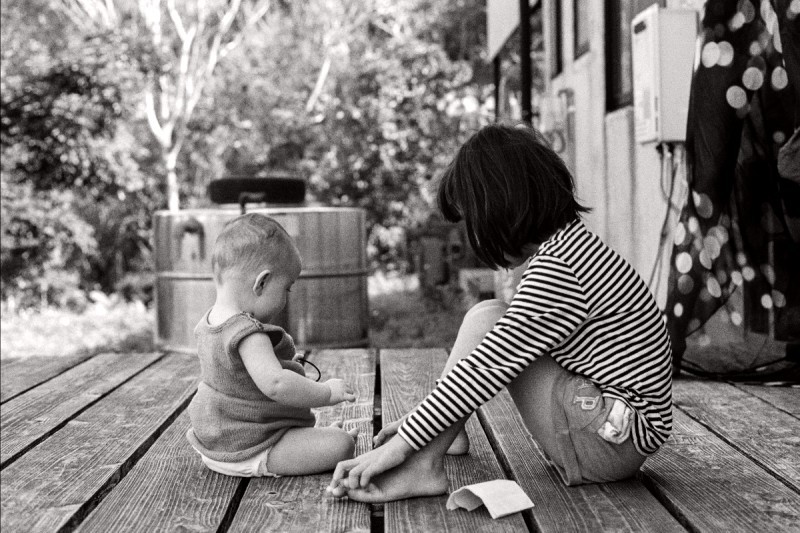
How a Staffing Agency Can Help
Anita Rogers, founder of household staffing agency British American, has more than a decade’s experience in pairing families with household staff, from nannies and butlers to personal assistants and estate managers. She’s earned a reputation for finding successful matches–and also for helping to handle any situation that may arise in the working household. Here, she shares her insights on why hiring for your childcare or home needs is profoundly personal, and how a staffing agency can help with the process. View on Goop.
A Q&A with Anita Rogers
Q: What are the upsides to using an agency?
A: An agency helps you determine what kind of help you really need, and devises the way in which you want your staff to fit your lifestyle. It also saves you time and keeps you safe during the interview process. Some families have limited experience interviewing and hiring childcare and household staff, which makes it easy to miss signs of danger, red flags, or dishonesty. We enforce strict standards as we interview thousands of candidates each year. This has allowed us—and other reputable agencies—to become experts at spotting dishonest references and to be able single out specific personality traits and potential challenges. A staffing agency has seen how similar traits have played out with other candidates, which lends to its ability to find the best fit for you, your family, and your household.
Q: What are the biggest misconceptions about household staffing?
A: Both parties must be willing to give and take in order to find the best match. Often people think they can hire a candidate if they offer a competitive or high salary. Or if a nanny or butler has excellent experience, they might assume they can get a higher salary and an ideal schedule. But staffing is a matchmaking process, and both parties must be satisfied with the relationship and the circumstances in order for it to work.
Q: How do you recognize good talent?
A: It’s a long process—and it’s so much more than just a great résumé and reference letters. We look for candidates that have a balance of experience, training, and education in their field and glowing references from past employers. Other indicators we look for include personality, attitude, flexibility, grammar, responsiveness, and confidence.
The résumé is always the first indicator of talent, where we look at formal level of experience, age appropriate childcare experience, the types of homes an individual has worked in, longevity in previous jobs, and demonstrated professionalism and willingness. We screen all résumés and references and do extensive state, federal, and international background checks, as well as a thorough screening of their social media.
Q: What’s the secret to finding a good match between a family and nanny?
A: Everyone must be on the same page from the very beginning of the process. One family’s dream nanny could be another’s nightmare. It’s imperative that the candidate and the family have a similar approach to raising children, as well as complementary personalities. Someone who is really laid back isn’t going to work well in a formal home that thrives on structure. (The reverse is true as well.) The perfect nanny and family pairing has similar philosophies about discipline, education, and responsibilities. There has to be a mutual respect between the parents and the nanny regarding the decisions made concerning the child. As a parent, if you feel like you have to micromanage and instruct your nanny on how you’d like every situation handled, you will become frustrated and resentful of the situation.
One of the most important factors to consider during the process of finding a good match is assessing the needs and expectations of the family. There’s a huge difference between a parent looking for an extra set of hands to help with driving, activities, and meals and a working parent who needs someone to be the child’s primary caregiver. A take-charge, independent, problem-solving nanny with sole-charge experience isn’t going to thrive as a helper. In the same way, a nanny without the confidence to make decisions on his or her own and proactively foresee situations isn’t the best choice for a family where the parents are gone most of the day.
Q: Once the hiring process is done, what other support do clients typically need?
A: It depends upon the family. Clients will often come to us for help with communicating with their new employee, especially during the transition process while the employee settles in. We always encourage regular, open and honest communication between both parties. On occasion, we will go into the home as a “manager” and help iron out any small issues that may exist. A relationship between a family and their household employees needs to be nurtured and carefully built, as this is a private home, where discretion is of utmost importance. We encourage clear communication and a weekly sit-down between a family and staff.
Q: If a match doesn’t work out, what is your advice for handling a potential change (or parting ways)?
A: We suggest that each party be gentle but honest about their feelings. The parting should be done with kindness and care so that everyone involved understands that it isn’t a personal attack, just a relationship that has outlived its potential. When hiring staff, you are creating a business in your home. I have seen people distraught if something isn’t working out because they don’t want to offend someone, they don’t want to hurt their feelings.
In certain situations, we’ll go into the residence and let the candidate go so that we can assure it’s done with delicacy. Every situation is very different. We’ve learned it’s best to never point fingers and to make everyone feel good. We directly address and try to resolve any problems, serious or minor, that are brought to our attention, and to support the client or candidate. The ending of a professional relationship can be emotional, particularly if it involves an intimate household setting, so we work to minimize any potential animosity a much as possible.
Q: Is there a difference between a nanny and a career nanny?
A: Most definitely. A typical nanny is different from a career nanny in that they often have a lot of experience with families, but no background or education in child development. Other nanny candidates are great with children and may have teaching degrees or other formal education, but limited in-home experience (typically part-time babysitting work).
A career nanny is someone who has chosen childcare as his or her profession. Most often, these candidates have formal education in child development and/or psychology. This can include a college degree in education or or training from previous jobs. Career nannies also have an employment history of long-term placements in private homes, understand the dynmics of working in a home environment and are great with children. A career nanny knows how to anticipate needs, respect a family’s privacy and space, and handle the logistics of high-end homes. Being in a home is very different than working in a school or daycare; there is no way to prepare or train someone for it, it’s something you learn and understand only after having experienced it.
Q: How have staffing agencies changed over the years?
A: Historically, many agencies have been run by only one or two people. Today, the amount of work it takes to verify backgrounds, interview candidates, and create and nurture relationships is impossible with such a small team. This is a time-intensive business, which is why a larger team with modernized and strict processes is essential.
